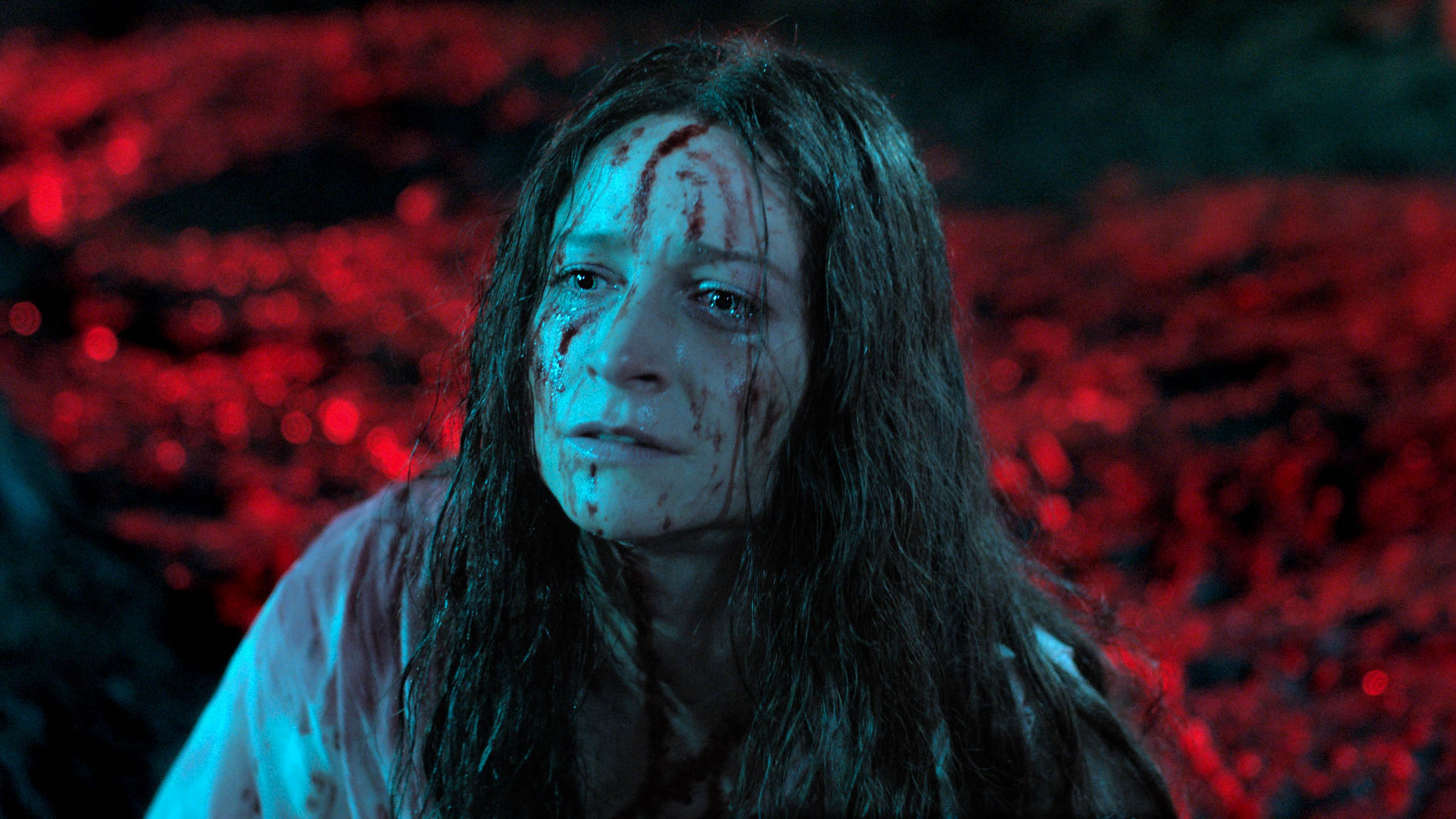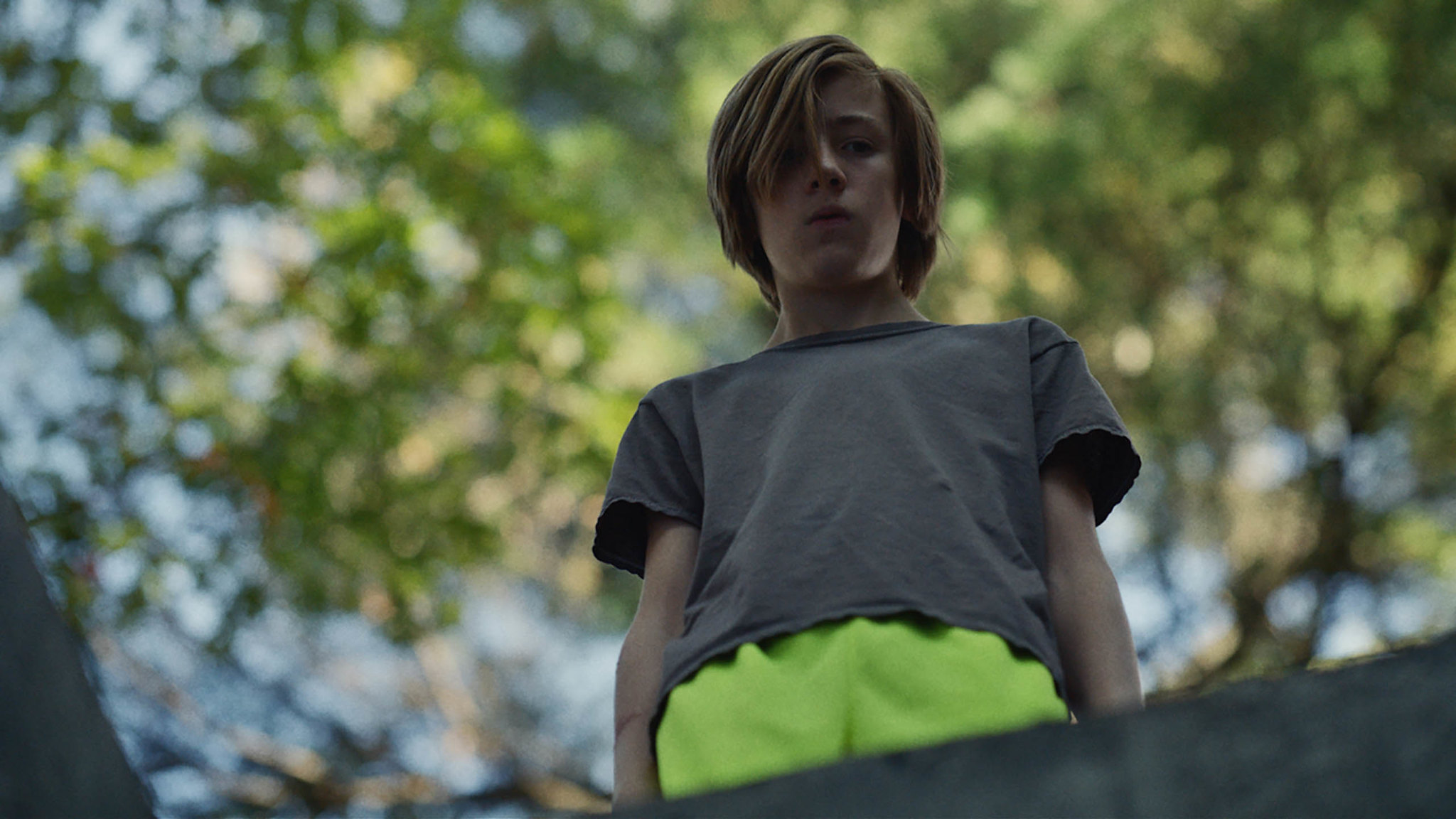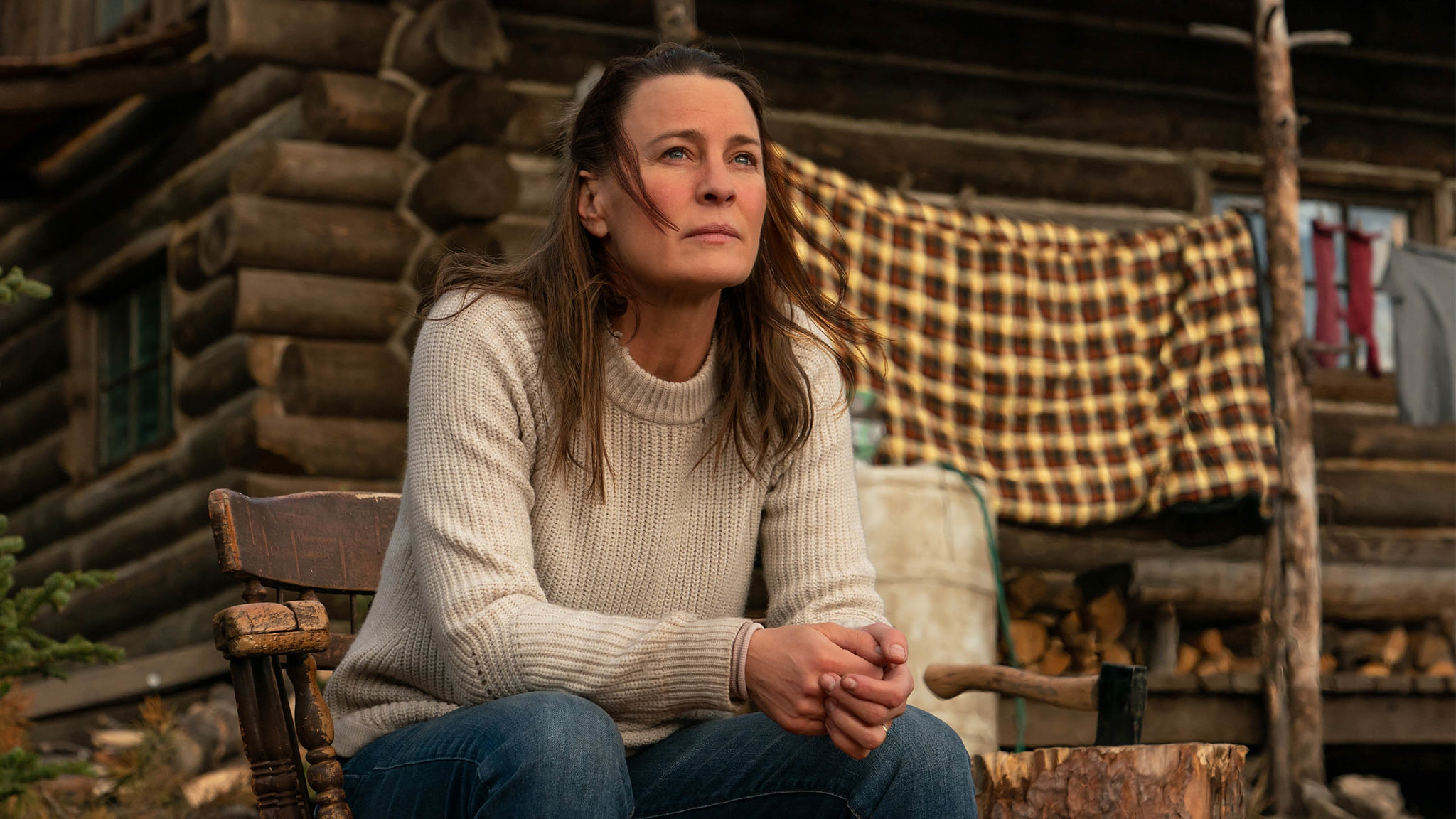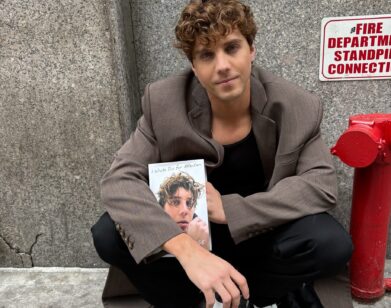Exit Poll
Three Directorial Debuts That Stood Out at Sundance

“Eye gouging must go!” Enid decrees in the opening moments of Censor, a nostalgic gore-fest set in the England of the mid-1980s. Enid (played by the talented Niamh Algar) is pure evil—which is to say, a film censor—whose job it is to sit and watch a seemingly endless stream of bad horror movies, making edits for consumer “safety.” It felt like an apt if somewhat ominous way to begin the 2021 Sundance Film Festival viewing experience from home, a Smart TV app replacing the old VHS projectors being used in the film. Immediately one is struck by first-time director Prano Bailey-Bond’s attention to detail, and Paulina Rzeszowska’s exceptional production design anchoring the proceedings in a sort of microwaved, Thatcherite austerity that would be easily at home in an episode of Black Mirror. As Enid takes in film after film, she begins to receive flashbacks from her own traumatic childhood. We discover that an incident took place and her sister disappeared, her parents presenting her with a death certificate over dinner that they’ve drawn up in order to put closure on an open family wound. Enid, believing her sister is still out there, becomes fixated on a horror movie starlet she thinks may be her, and finds herself investigating a film producer she believes may hold the key to her disappearance, recreating it in several of his films.
Bailey-Bond is eager to explore themes of visual trauma and the time-curdled conversation on whether life imitates art or vice versa. When a madman slaughters his family, blaming one of the films Enid and her colleagues reviewed, Enid’s professional life begins to spiral. Ultimately, Enid finds her paranoid delusions take control over her own actions, as she descends into a murderous revenge spree, all under the misguided auspice that she is rescuing her missing sister. It feels like a trenchant—albeit in a genre-specific sort of way—meta-commentary on trauma as entertainment, and the dangers of mistaking the two. By the time we reach the climactic violence, it feels like too little too late, the film having milked its slow march of dread a bit too long. Often the compositions feel like an afterthought, much of the giallo-inspired art direction wasted by uninspired cinematography that could have gone even shlockier and gotten away with it. Ultimately, Censor is an homage that couldn’t decide what it wanted to be; a high-style genre elevation or a lowbrow fabulous reevaluation of said genre’s merits. It arrives somewhere in the realm of made-for-TV-movie middlebrow entertainment. Ironically, Censor could have used another edit.

John and the Hole is a film that exercises its own horror muscle, directed with menacing style by Pascual Sisto, in his feature debut. It’s a kind of self-contained wonder (no pun intended) adapted from an Argentinean short story by Nicolás Giacobone, an efficiently paced and starkly funny story of a young boy named John (Charlie Shotwell, of Captain Fantastic) who drugs his family and inprisons them in an uncovered bunker so he can do whatever he wants without being bothered. John’s weirdness sits in the center of the story like some sort of undiagnosed autism or other social disorder, as he sits stone-faced in response to his father Brad (played by Michael C. Hall with an overachieving hubris) promising to take him to play tennis, or at the dinner table where his sister Laurie (Taissa Farmiga, knowingly vapid) takes up most of the attention. John’s real desire is to disappear into gaming, the activity of choice for most dispossessed young males, and when he discovers a mysterious bottle of pills in his spacey mother Anna (Jennifer Ehle, brilliant)’s bathroom drawer, a plan begins to take shape. John tests out his drugging on the landscaper by mixing it into a pitcher of lemonade. When his family wakes up inside a bunker (the titular “Hole”) on a landing pad of pillows and sofa cushions, covered in dirt, we know how they got there.
Sisto employs an economic briskness with moving along the story, which quickly descends into a perverse iteration of Home Alone. We watch as John joyrides with his mother’s luxury SUV into town, invites his friend over, and they try to drown each other in the pool. Cinematographer Paul Ozgur, known for shooting music videos, gives an impeccably observant sterility to these scenarios, shooting in 4:3 aspect ratio that encloses the actions of the film in an aloof mirror of the hole itself. Sisto lingers a bit too long on each shot, successfully allowing the spaces between and around the dialogue and action to curdle into a deeply arcane sense of dread. A bad liar, John is only able to keep up his grift for so long before it begins to unravel at the seams, due in large part to the meddling of one of his mother’s friends, Paula (Tamara Hickey), who confronts him in a scene that becomes strangely erotic and genuinely scary. The obvious precursors for this type of leftfield allegorical discomfort within the realm of the upper class are Michael Haneke and Yorgos Lanthimos, whose production designer from The Lobster, Jacqueline Abrahams, creates an uncannily accurate send-up of post-minimalist yuppie luxuries punctuated by unsightly consumer products, turning away from the Kevin McCallister Christmas-season blowout spree and toward a more sporadic and banal expression of contemporary class comforts that lends a grim realism to the story. With its inspired and solipsistic totality of vision, John and the Hole is a dark and fun surprise, portending great things for its director moving forward.

I went three for three with directorial debuts with Robin Wright‘s Land, an aching story of grief set against the breathtaking Wyoming wilderness. It’s a dramatic trope we’ve seen, and Wright nevertheless manages to impress both behind and in front of the camera where she matches herself skill for skill in a film that will inspire some, bore others, and still manage to get even the most cold-hearted among us to come out of it weeping against our better instincts. Wright plays Edee, a grieving widow and mother whose suffering has put her at a remove from friends and family who worry she will self-harm. No longer interested in living, she buys a plot of land in the remote mountains of Wyoming and sets out to homestead on her own without a phone, the type of extreme journey of the soul undertaken by someone with something serious to run from. In Edee’s case, it’s having to face normality, being encountered each day with people who could never understand her pain. When she arrives, her novice attempts at survival routinely fail, until she turns into a popsicle in a snowstorm, the door of her cabin swinging open, which draws the concern of a passing outdoorsman, Miguel (Demián Bichir), who revives her with the help of a nurse named Alawa (Sarah Dawn Pledge). If something feels irksome about a Mexican hunter and an indigenous nurse having to teach an obstinate white woman how to survive in the great outdoors, it’s by design. Wright’s Edee has built up such fortresses against other people that she is borderline resentful to be rescued at all. Slowly and plaintively, Miguel chips away at Edee’s steely edifice as he teaches her to hunt deer, trap rabbits, and eventually, seemingly randomly, gives her his German Shepherd. The two develop a sweet platonic friendship built on mutual respect for long silences, and it becomes clear that Miguel’s draw to the territory is born of a similarly tragic past. When Miguel ceases to visit and Edee journeys to the nearest town to find him, the film takes a twist that feels emotionally cheap but works anyway, and the way the emotions of the film coalesce in this one powerful scene is nevertheless earned, with Bichir walking away with the movie in a performance that could generate awards buzz for its subtlety and moral ambiguity as much as for its obvious hook.
If the film suffers from anything, it’s its utter conventionality. Following films like Into the Wild (directed by Wright’s ex-husband, Sean Penn), Wild, Call of the Wild, and other movies with “wild” in the title, the trope of someone running from their past into untamed nature has congealed into a kind of schmaltzy minigenre, and in a year where Nomadland achieves much the same with a greater artistic point of view, Land could be in danger of getting… well… lost in the woods. Nevertheless, it’s a tremendous showcase for Wright’s talents (previously to this, she directed episodes of House of Cards) which can easily be tapped into and applied to any handsome commercial drama that the studios or streamers can dream up. Let’s hope that, instead, she sets out for less civilized territory next time.






